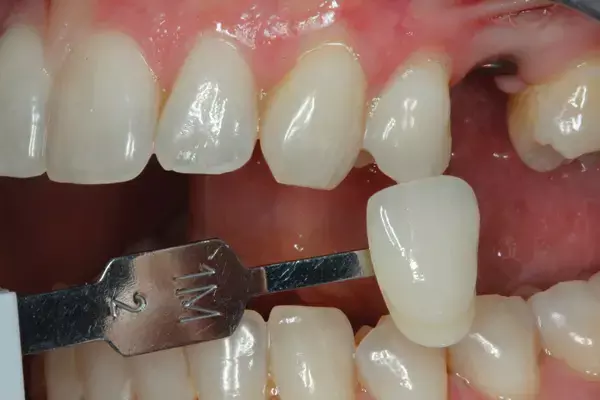- Home
- Medical news & Guidelines
- Anesthesiology
- Cardiology and CTVS
- Critical Care
- Dentistry
- Dermatology
- Diabetes and Endocrinology
- ENT
- Gastroenterology
- Medicine
- Nephrology
- Neurology
- Obstretics-Gynaecology
- Oncology
- Ophthalmology
- Orthopaedics
- Pediatrics-Neonatology
- Psychiatry
- Pulmonology
- Radiology
- Surgery
- Urology
- Laboratory Medicine
- Diet
- Nursing
- Paramedical
- Physiotherapy
- Health news
- Fact Check
- Bone Health Fact Check
- Brain Health Fact Check
- Cancer Related Fact Check
- Child Care Fact Check
- Dental and oral health fact check
- Diabetes and metabolic health fact check
- Diet and Nutrition Fact Check
- Eye and ENT Care Fact Check
- Fitness fact check
- Gut health fact check
- Heart health fact check
- Kidney health fact check
- Medical education fact check
- Men's health fact check
- Respiratory fact check
- Skin and hair care fact check
- Vaccine and Immunization fact check
- Women's health fact check
- AYUSH
- State News
- Andaman and Nicobar Islands
- Andhra Pradesh
- Arunachal Pradesh
- Assam
- Bihar
- Chandigarh
- Chattisgarh
- Dadra and Nagar Haveli
- Daman and Diu
- Delhi
- Goa
- Gujarat
- Haryana
- Himachal Pradesh
- Jammu & Kashmir
- Jharkhand
- Karnataka
- Kerala
- Ladakh
- Lakshadweep
- Madhya Pradesh
- Maharashtra
- Manipur
- Meghalaya
- Mizoram
- Nagaland
- Odisha
- Puducherry
- Punjab
- Rajasthan
- Sikkim
- Tamil Nadu
- Telangana
- Tripura
- Uttar Pradesh
- Uttrakhand
- West Bengal
- Medical Education
- Industry
Monolithic Hybrid Disilicate abutment dependable treatment option for single restorations

Monolithic Hybrid Disilicate abutment dependable treatment option for single restorations on implants suggests a new study published in the Journal of Prosthodontics
Hybrid abutment crowns (HACs) made from monolithic ceramics represent an efficient option for single restorations on implants. However, long-term data are scarce. The purpose of this clinical trial was to evaluate the survival and complication rates of CAD-CAM fabricated HACs over a time period of at least 3.5 years.
Twenty-five patients with a total of 40 HACs made of monolithic lithium disilicate ceramic bonded to a titanium base CAD-CAM abutment were retrospectively evaluated. All implants and screw-retained restorations were placed and manufactured in the same department of a university hospital. Only crowns that had been in service for more than 3.5 years were included in the study. HACs were evaluated regarding technical and biological complications. Functional Implant Prosthodontic Scores (FIPS) were obtained.
Results:
The mean observation time was 5.9 ± 1.4 years. Implant survival was 100%, and HAC survival was 97.5%. Over the observation period, one crown fracture was observed, necessitating refabricating of the restoration. Three minor biological complications were found. The overall mean FIPS score was 8.69 ± 1.12 points.
Within the limitations of this study, monolithic screw-retained HACs milled from lithium disilicate ceramics and bonded to titanium bases appeared to be a reliable treatment option over more than 3.5 years due to their low biological and technical complication rates.
Reference:
Schubert O, Goob J, Schweiger J, Güth JF, Edelhoff D, Graf T. Clinical performance of monolithic lithium disilicate hybrid abutment crowns over at least 3.5 years. J Prosthodont. 2023 May 27. doi: 10.1111/jopr.13719. Epub ahead of print. PMID: 37243453.
Keywords:
Monolithic, Hybrid, Disilicate, abutment, dependable, treatment, option, for, single, restorations, implants, Journal of Prosthodontics, Schubert O, Goob J, Schweiger J, Güth JF, Edelhoff D, Graf T, CAD-CAM; complications; dental implant; hybrid abutment crowns; lithium disilicate; monolithic restorations.
Dr. Shravani Dali has completed her BDS from Pravara institute of medical sciences, loni. Following which she extensively worked in the healthcare sector for 2+ years. She has been actively involved in writing blogs in field of health and wellness. Currently she is pursuing her Masters of public health-health administration from Tata institute of social sciences. She can be contacted at editorial@medicaldialogues.in.
Dr Kamal Kant Kohli-MBBS, DTCD- a chest specialist with more than 30 years of practice and a flair for writing clinical articles, Dr Kamal Kant Kohli joined Medical Dialogues as a Chief Editor of Medical News. Besides writing articles, as an editor, he proofreads and verifies all the medical content published on Medical Dialogues including those coming from journals, studies,medical conferences,guidelines etc. Email: drkohli@medicaldialogues.in. Contact no. 011-43720751


